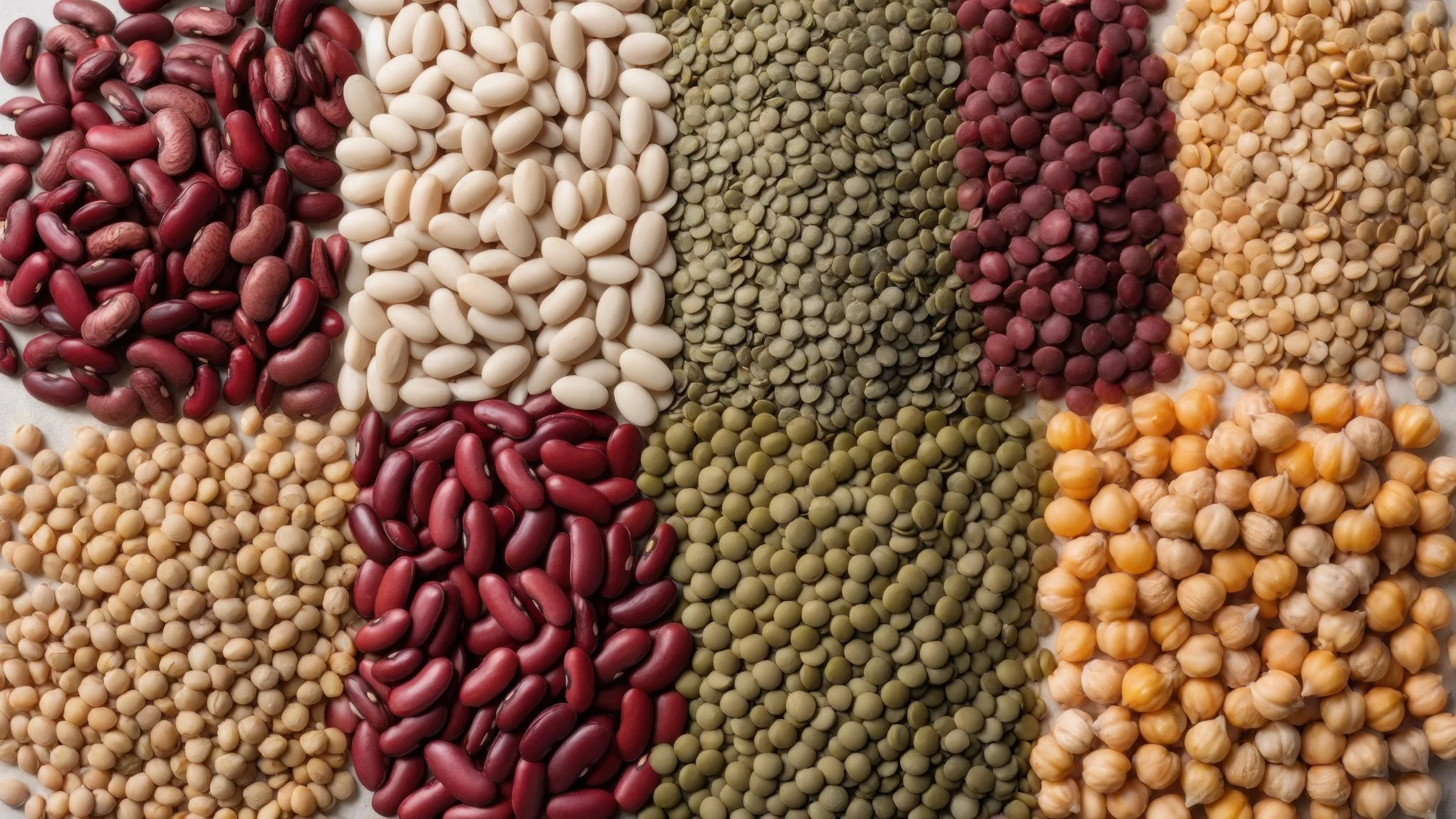Beans for the Heart: How a Daily Cup Could Reduce Inflammation & Improve Cholesterol in Prediabetes
AdobeStock Lic. #1337445520
Cardiovascular disease and type 2 diabetes are deeply interlinked, with prediabetes—a condition of elevated blood sugar—serving as a key warning sign. Managing metabolic health early can dramatically alter one’s trajectory toward cardiovascular disease. Now, promising new research suggests that a simple dietary habit—eating one cup of beans daily—might significantly reduce inflammation and improve cholesterol levels in adults with prediabetes.
What Does The Study Look Like at a Glance?
A 12‑week randomized trial, presented at the American Society for Nutrition’s NUTRITION 2025 conference, enrolled 72 adults with prediabetes. Participants were randomly assigned to consume:
1 cup of black beans daily
1 cup of chickpeas daily
or, as a control, 1 cup of white rice daily
Researchers measured metabolic markers—cholesterol, inflammation, and glucose—at baseline, midway (6 weeks), and at 12 weeks, using blood samples and glucose tolerance testing.
What Are The Key Findings
Cholesterol Improvements (Chickpea Group)
Participants consuming chickpeas experienced a significant reduction in total cholesterol—from about 200 mg/dL to 185.8 mg/dL—a decrease of ~14 mg/dL, notable for reducing LDL-driven cardiovascular risk.
Inflammation Reduction (Black Bean Group)
Those eating black beans saw levels of the pro‑inflammatory marker interleukin‑6 (IL‑6) drop from approximately 2.57 pg/mL to 1.88 pg/mL, indicating a marked decrease in systemic inflammation.
While these changes are promising, the study did not find meaningful improvements in fasting glucose or insulin response—suggesting that beans may impact cardiometabolic health independent of blood sugar control.
Why Does It Matter for Heart Health?
1. Inflammation and Cardiovascular Risk
Chronic low-grade inflammation is a known catalyst for atherosclerosis and heart attacks. IL‑6, a pro-inflammatory cytokine, has been directly associated with plaque progression and cardiovascular mortality. Lowering IL‑6 levels through bean intake could blunt inflammation-driven cardiac risk.
2. Cholesterol and LDL Reduction
Even modest decreases in total and LDL cholesterol—like the ~14 mg/dL drop seen with chickpeas—have meaningful clinical effects. According to AHA data, lowering LDL by just 1% can cut heart attack risk by ~1%, meaning that higher reductions could yield significant cardiovascular benefit .
3. Accessibility and Practicality
Unlike prescription medications, beans are inexpensive, widely available, and easy to incorporate into everyday meals. Can, dried, or frozen beans offer flexible dietary options without the need for supplements or specialized foods.
Why Do Beans Work?
High Dietary Fiber: Beans contain both soluble and insoluble fiber, which helps reduce cholesterol by binding bile acids and removing them from the body.
Protein and Nutrient Density: Providing plant-based protein, beans increase satiety and deliver important micronutrients (iron, folate, potassium) that contribute to cardiovascular health.
Antioxidants & Polyphenols: Beans contain phenolic compounds that reduce oxidative stress and inflammation, further enhancing vascular protection.
Prebiotic Effects on Gut Health: Beans may enhance gut microbiota diversity and health, influencing metabolic and vascular function through the gut-heart axis.
What Are Some Practical Tips for Incorporating Beans Into Your Diet?
To harness the heart‑protective benefits of beans, try these daily strategies:
One cup daily: Whether in chili, soup, salad, or mixed grain bowls.
Swap beans for rice or meat: Replace a carb-heavy or saturated-fat-based meal component with beans.
Mix up your beans: Use chickpeas, black beans, lentils, pinto beans, kidney beans, etc.
Mind the extras: Use low-sodium canned beans and avoid added fats, salt, or sugar.
Start slow: Increase from half a cup to a full cup to allow time for digestive adjustment.
Considerations & Limitations
Sample size and scope: 72 participants limit generalizability. Larger, peer-reviewed trials are needed.
Short duration: While 12 weeks is impactful, long-term benefits remain to be confirmed.
Population specificity: Results apply specifically to adults with prediabetes; effects in other groups are unknown.
No glucose improvements: Despite metabolic benefits, bean intake did not affect blood sugar control over the trial period.
The Big Health Takeaways
Dietary simplicity, powerful impact: One cup of beans daily offers accessible cardiometabolic benefit without supplement costs or complexity.
Anti-inflammatory and cholesterol‑lowering benefits: Two distinct bean types target separate cardiovascular risk pathways.
Recommendations: Encourage patients—especially those with prediabetes or metabolic syndrome—to replace 1 cup of starch, processed food, or meat with beans.
Complementary strategies: Beans are best used alongside heart-healthy diets (DASH or Mediterranean), regular exercise, and standard preventive care (BP and cholesterol management).
This study confirms what history and epidemiology have long hinted at: beans are functional superfoods that improve health in multiple ways. For cardiologists, the message is clear: A simple, daily bean habit can reduce inflammation, improve cholesterol, and serve as a cost-effective tool to protect hearts—especially for patients on the threshold of chronic disease.
Sources
American Society for Nutrition (2025). Study finds daily cup of beans boosts heart and metabolic health eatingwell.comhealthday.com+15eurekalert.org+15drugs.com+15
EatingWell (2025). These 2 Foods May Help Lower Your Chronic Disease Risk eatingwell.com
Sci.News (2025). Study: Bean Consumption Improves Metabolic and Inflammatory Markers in Adults with Pre‑Diabetes sci.news
Medical News Today (2025). Eating beans daily may help reduce inflammation, and lower cholesterol medicalnewstoday.com+1aol.com+1
Health.com (2025). What Can Happen to Your Cholesterol When You Eat Beans Every Day? bioengineer.org+15health.com+15medicalnewstoday.com+15
World Journal of Clinical Nutrition (2020). Meta-analysis: Beans reduce LDL cholesterol and inflammation news-medical.net+11beaninstitute.com+11thesun.ie+11
News‑Medical.net (2025). Daily bean consumption linked to improved heart and metabolic health drugs.com+11news-medical.net+11

